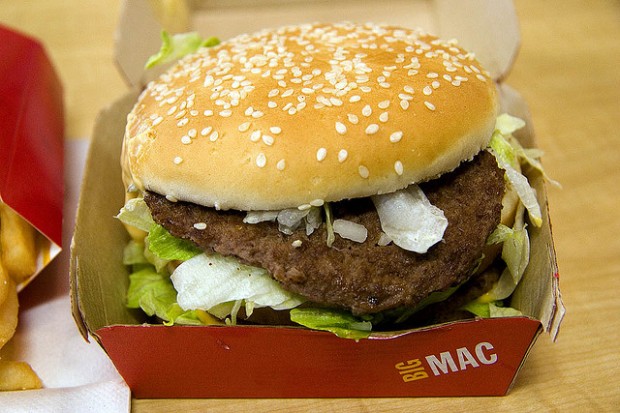The Unemployed Cutting Corners in their Diets

pointnshoot / Flickr
Higher calorie foods tend to be cheaper, experts say.
Eating healthy can be a matter of having access to stores, but it’s also about having enough money to buy healthy food and having the time to cook it. And as the economy has worsened, more people are eating unhealthy foods this year than last.
Given those factors comes this article from Huffington Post’s Janell Ross about unhealthy eating and the disproportionately high rate of black unemployment. She writes that since housing costs tend to be fixed, many underemployed and unemployed people save money by eating cheaper and unhealthy foods. She speaks to a Michele Washington, a college-educated single mom originally from Atlanta, who moved into her sister’s Harlem apartment and holds a part-time job. Washington used to cook dinners for her son, Monty. Now, they frequent McDonald’s:
For now, the thought of fishing the pots and pans out of the boxes to try to forge a meal in a cramped kitchen holds little appeal. Most nights, [Washington] is so exhausted by her day, and often so discouraged by her fruitless search for full-time work, that she and Monty eat out –- usually hamburgers or cheap Chinese food.
Once it’s their turn at the McDonald’s counter, Monty wants the value meal burger, but his mother insists on the chicken sandwich -– a nominal nod in the healthier direction. He wants a sundae, but she orders him a yogurt parfait with fruit and granola. Washington relents when Monty can’t chose between a soda and fries: He gets both. Washington orders the same. The bill does not reach $10.
“I’m well aware that I’m saving money now that I might pay in medical bills later,” Washington says.
She worries that her son -– high-energy by nature -– is eating foods that will make it hard for him to sit still in school come fall, interfering with the formative years of his education.
“I worry that his teachers will decide that he’s a ‘problem child,’ and put him on some track that doesn’t include college,” she says.
The story, which also notes that higher-calorie food tends to be cheaper, can be read here.





